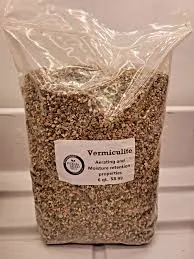Dec . 14, 2024 11:46 Back to list
hot water pipe insulation materials
Hot Water Pipe Insulation Materials Importance and Options
In modern construction and renovation, the importance of energy efficiency has taken center stage. One effective measure to enhance energy efficiency lies in the insulation of hot water pipes. Insulating these pipes is essential to minimize heat loss during the distribution of hot water, contributing significantly to energy conservation and cost savings.
Importance of Insulating Hot Water Pipes
The primary function of hot water pipe insulation is to reduce heat loss. When hot water travels through uninsulated pipes, a considerable amount of heat is lost to the surrounding environment, leading to increased energy consumption as heating systems work harder to maintain water temperature. This not only raises energy bills but also places unnecessary stress on boilers and heating systems. Effective insulation can reduce energy costs by maintaining water temperature more consistently and efficiently.
Additionally, insulated pipes contribute to improved comfort in residential and commercial settings. Homeowners can enjoy hot water at their desired temperature immediately, without waiting for cold water to drain from the pipes. This not only saves time but also ensures that the water used for bathing, cooking, and cleaning is always at the ideal temperature.
Types of Insulation Materials
When selecting insulation materials for hot water pipes, several options are available, each with its unique properties, benefits, and drawbacks
1. Fiberglass Insulation Fiberglass is one of the most commonly used materials for insulating hot water pipes. It has excellent thermal resistance and can significantly reduce heat loss. This material is available in pre-formed pipe insulation or batts, making installation straightforward. However, care must be taken during installation to avoid irritation from glass fibers.
hot water pipe insulation materials

2. Foam Insulation Polyethylene foam insulation is popular due to its excellent insulative properties and ease of installation. It is lightweight, flexible, and typically comes in tubular shapes that fit over pipes easily. Foam insulation also has a closed-cell structure, which helps prevent moisture accumulation, reducing the risk of pipe corrosion.
3. Rubber Insulation Similar to foam, rubber insulation provides effective thermal resistance while being durable and flexible. It can withstand higher temperatures, making it suitable for hot water applications. Rubber insulation is also resistant to moisture and prevents the buildup of mold and mildew.
4. Mineral Wool Mineral wool (or rock wool) is another insulation material that can be used for hot water pipes. It offers excellent thermal performance and fire resistance, although it is bulkier than other foam options. Mineral wool is typically used in large commercial and industrial applications.
5. Reflective Foil Insulation This type of insulation consists of a layer of foil laminated to insulating material. It reflects radiant heat away from the pipes, improving energy efficiency in systems where pipes are exposed. Reflective foil is often used in combination with other insulation materials for enhanced performance.
Installation Considerations
The installation of insulation materials can be crucial for their effectiveness. It is essential that insulation is applied uniformly along the entire length of the hot water pipes, with no gaps or exposed areas that could lead to heat loss. Additionally, insulation should be checked regularly for wear or damage, especially in high-traffic areas or where environmental conditions may lead to deterioration.
Conclusion
In conclusion, insulating hot water pipes is a vital step toward enhancing energy efficiency in both residential and commercial properties. With various insulation materials available, including fiberglass, foam, rubber, mineral wool, and reflective foil, property owners can choose the option that best suits their needs. By investing in proper insulation, not only can energy costs be significantly reduced, but comfort, safety, and longevity of plumbing systems can also be remarkably improved.
-
High-Quality Fe-C Alloy Leading Manufacturers & Spherical Alloy Materials Supplier
NewsJun.10,2025
-
Premium Low Nitrogen Recarburiser Supplier & Manufacturer – High Quality Exporters
NewsJun.10,2025
-
DT4 High-Quality Magnetic Materials Leading DT4 Manufacturer & Supplier
NewsJun.10,2025
-
High-Performance Spring Steel Suppliers Custom Solutions
NewsJun.10,2025
-
Premium SWRCH6A Manufacturer Steel Wire Supplier & Factory
NewsJun.10,2025
-
Premium Mild Steel Wire Rod Supplier & Manufacturer
NewsJun.10,2025
